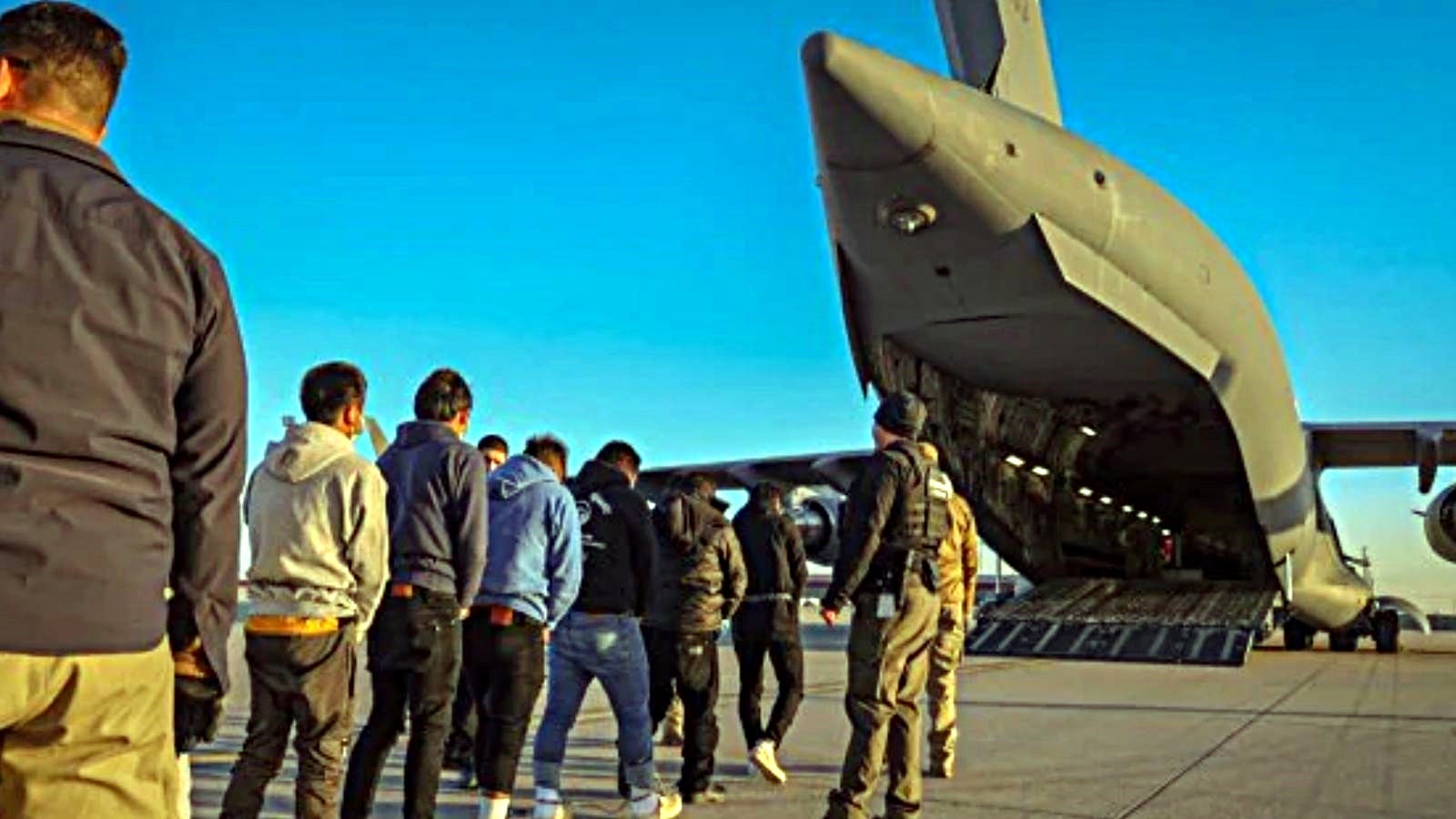 |
|
The repatriation of 104 Indian nationals from the United States marks a significant event in the ongoing dialogue surrounding US immigration policies and their impact on Indian citizens. A United States military C-17 aircraft, carrying the deportees, landed in Amritsar, India, as scheduled. The flight originated from San Antonio, Texas, carrying a diverse group of individuals, not solely the deportees. The presence of 11 crew members and 45 US officials highlights the considerable logistical operation and the seriousness with which this repatriation was handled. The breakdown of deportees by state reveals a significant concentration from Punjab, Gujarat, and Haryana, indicating potential regional disparities in immigration patterns and enforcement actions. The inclusion of 25 women and 12 minors, with the youngest being only four years old, underscores the human element of this large-scale deportation and raises concerns about the impact on families separated by this action.
The geographic distribution of deportees within India itself provides valuable insights into the demographics affected by US immigration enforcement. The fact that most of the deportees from Punjab originated from the Majha belt, encompassing regions like Gurdaspur, Amritsar, and Tarn Taran, suggests potential migration patterns and community ties that could inform future policy discussions and support services for returning citizens. The varying numbers of deportees from other states, such as Uttar Pradesh and Maharashtra, highlight the broad reach of these enforcement measures across India's diverse population. The attention given to the age distribution, with a considerable number of deportees under 25, indicates the potential long-term societal consequences of this repatriation for India.
The responses from Indian officials highlight the varied approaches to managing this repatriation. While Punjab's Chief Minister Bhagwant Mann pledged to provide all possible assistance to the deportees, indicating a compassionate approach, the Punjab police's decision to scan the past criminal records of the individuals reflects a more cautious and security-oriented perspective. The statement by Punjab NRI Affairs Minister Kuldeep Singh Dhaliwal suggesting that it's better to send illegal residents back home than imprison them in the US reflects a pragmatic viewpoint, acknowledging the limitations of the US justice system and the potential challenges faced by those detained. These differing reactions from officials reflect the complex interplay of humanitarian concerns, security measures, and political considerations surrounding large-scale deportations.
The article highlights the broader context of increasing US immigration enforcement measures, targeting those who entered the country illegally or overstayed their visas. This action aligns with a global trend of stricter immigration controls in various countries. Understanding the underlying reasons for the deportations is crucial to fully grasping their impact. Were these individuals convicted of crimes? Were they simply undocumented migrants? Were there due process issues involved? The lack of specific information on the reasons for deportation leaves this question unanswered. Further investigation is needed to ascertain the exact circumstances leading to the deportation of each individual to thoroughly understand the larger implications of this event.
The incident prompts critical examination of several aspects: the effectiveness of US immigration enforcement strategies; the support systems in place for returning deportees in India; the potential economic and social implications for families and communities impacted; the long-term consequences of separation for families affected; the balance between humanitarian considerations and security concerns in managing repatriation; and the need for international cooperation to address issues of migration and deportation more humanely and effectively. Further analysis of the data related to these deportations could inform improved policies regarding both the US immigration system and the support services offered to individuals upon their return to India. The case underscores the need for a comprehensive and multi-faceted approach to address the complex challenges posed by international migration.
Source: Who is on the flight carrying 104 individuals deported from the US?
